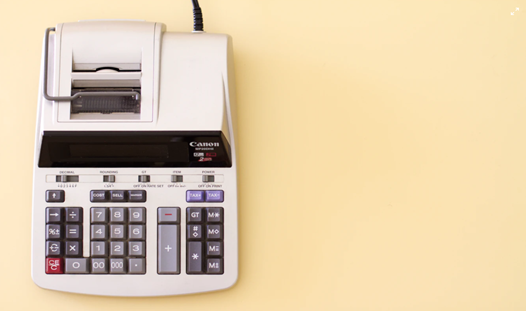Tips and pointers for small business bookkeeping success.

Bookkeeping is an essential task for small business owners today, as accurately keeping track of your financial records is crucial for successful business operation. Here, we will discuss the benefits of bookkeeping, why it is important, bookkeeping basics and our top 5 best bookkeeping tips.
Why is Bookkeeping Important, and What are the Benefits?
Bookkeeping is important for small businesses as it helps business owners establish a budget and keep track of their spending. In return, this makes it easier for businesses to review their financial expenses and create a plan for future expenditures regarding how these will be financially covered, leading to better decision making.
Bookkeeping also helps businesses track and analyse their cash inflows and outflows, creating the opportunity for payment issues to easily be identified.
During tax season, bookkeeping is beneficial as it makes the tax filing process more efficient and accurate, as instead of having to frantically search for business receipts, all the financial information is kept together in one main system, boosting business organization, professionalism, and productivity.
The Components of Basic Bookkeeping
Here, we have listed the top 6 components of basic bookkeeping. It is important for small business owners to understand these components if they wish to do bookkeeping themselves; however, if it does get too much for you, Agilis Books is always here to help.
1) Understand the five basic types of business accounts, to record business transactions appropriately.
- Assets
- Valuable company-owned tangible and intangible items
- Liabilities
- Debts or obligated money business owes.
- Revenue
- Money business earns from sales and/or services, that increases assets.
- Expenses
- Money spent producing business goods or services.
- Equity
- Assets owned by the business owner.
2) Create the business accounts using computer software.
Using software increases the accuracy of the data. Agilis Books recommend the following programs:
- Spreadsheet Software (Excel)
- Desktop Accounting Software (MYOB)
- Cloud-Based Accounting Software (Xero & QuickBooks)
Single-Entry is considered best for small, low volume businesses. Double-Entry is the most used bookkeeping method amongst businesses large or small.
3) Select a bookkeeping method.
- Single-Entry Bookkeeping
- Cash book where each transaction is recorded in a single-entry
- Double-Entry Bookkeeping
- Each business transaction is recorded in a minimum of two accounts, entered as a debit or credit.
4) Record every single incoming and outgoing business transaction.
A key aspect to bookkeeping, is that no transaction should be made without a receipt. This receipt could come in the form of an invoice, credit card slips or a promissory note.
5) Ensure your books are balanced.
When calculating the business account debits and credits, the totals must match to ensure your books are balanced.
6) Prepare your business financial reports.
- Balance Sheet
- Summary of the business’s financial balances – reporting of business assets, liabilities, and equity.
- Profit and Loss Statement
- Statement showcasing businesses gained revenue and acquired expenses.
- Cash Flow Statement
- Incoming and outgoing business transactions.
Bookkeeping Tips
Below we have listed our top 5 Bookkeeping tips for small business owners to keep in mind, if you are looking to do your own bookkeeping. This is to ensure you do not end up with a messy financial file, and accounting costs are minimized at the end of the financial year.
1. Separate business vs. personal bank accounts, and ensure you recognize the difference between business vs. personal expenses.
2. Utilize correct bookkeeping software, such as Xero or QuickBooks for accuracy.
3. Highly prioritize continuously keeping track of all business transactions, including cash payments
4. Create a schedule for producing financial reports (e.g., once per month), and stick to it to keep on top of your bookkeeping system.
5. If you find you are too overwhelmed with bookkeeping and do not have time for it and/or do not understand, outsource your bookkeeping to avoid mistakes.
If you need any assistance with getting your books under control, please do not hesitate to contact Agilis Books today and speak with one of our professional team members, to help get you the best possible outcome regarding your small business bookkeeping!
